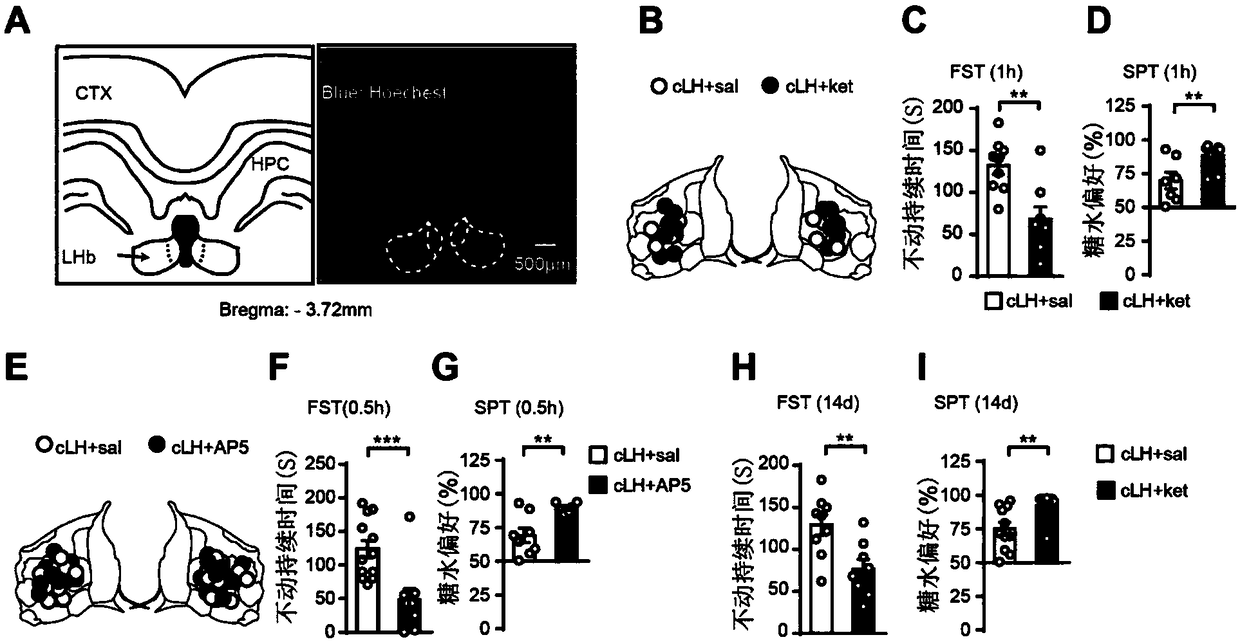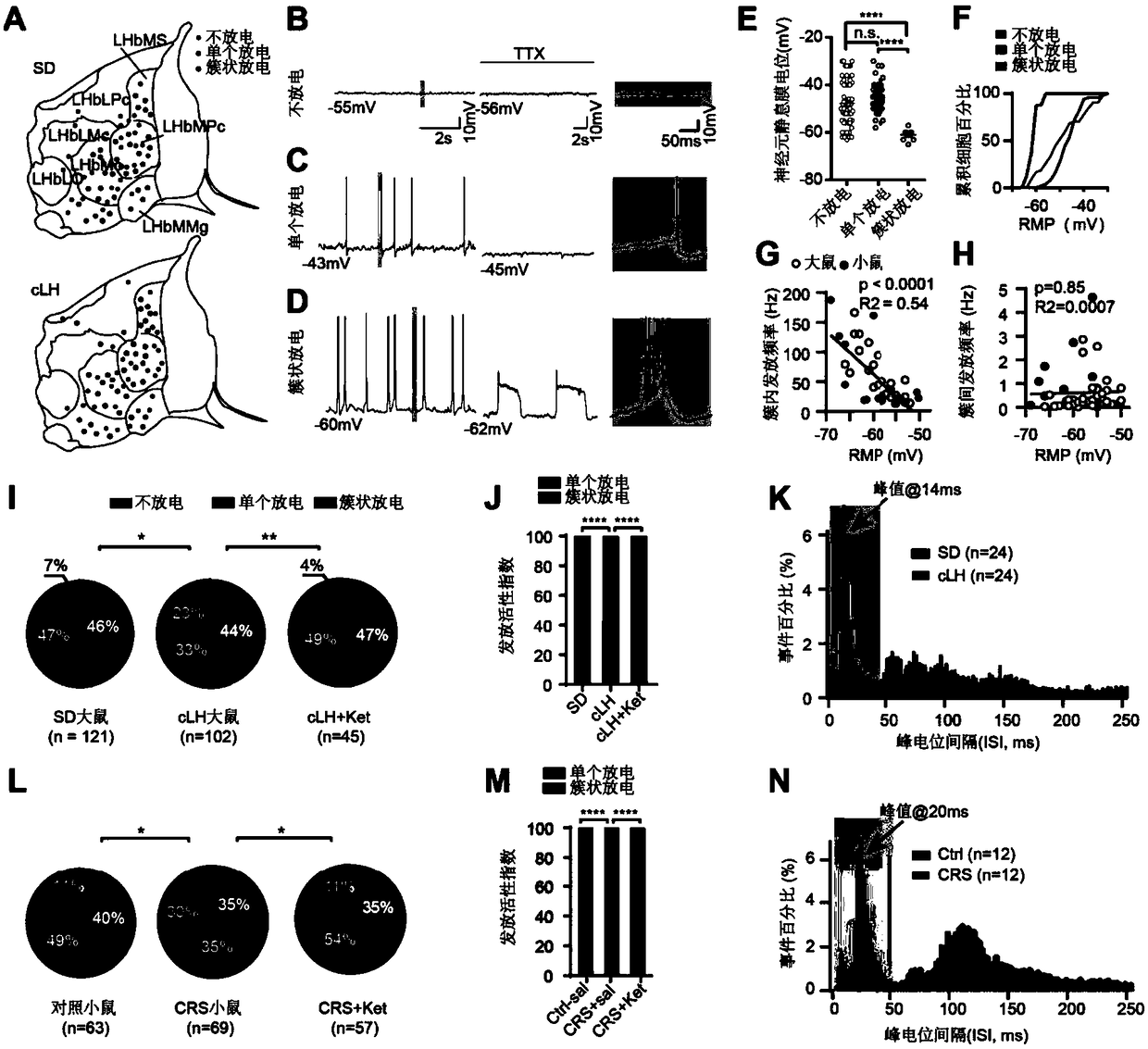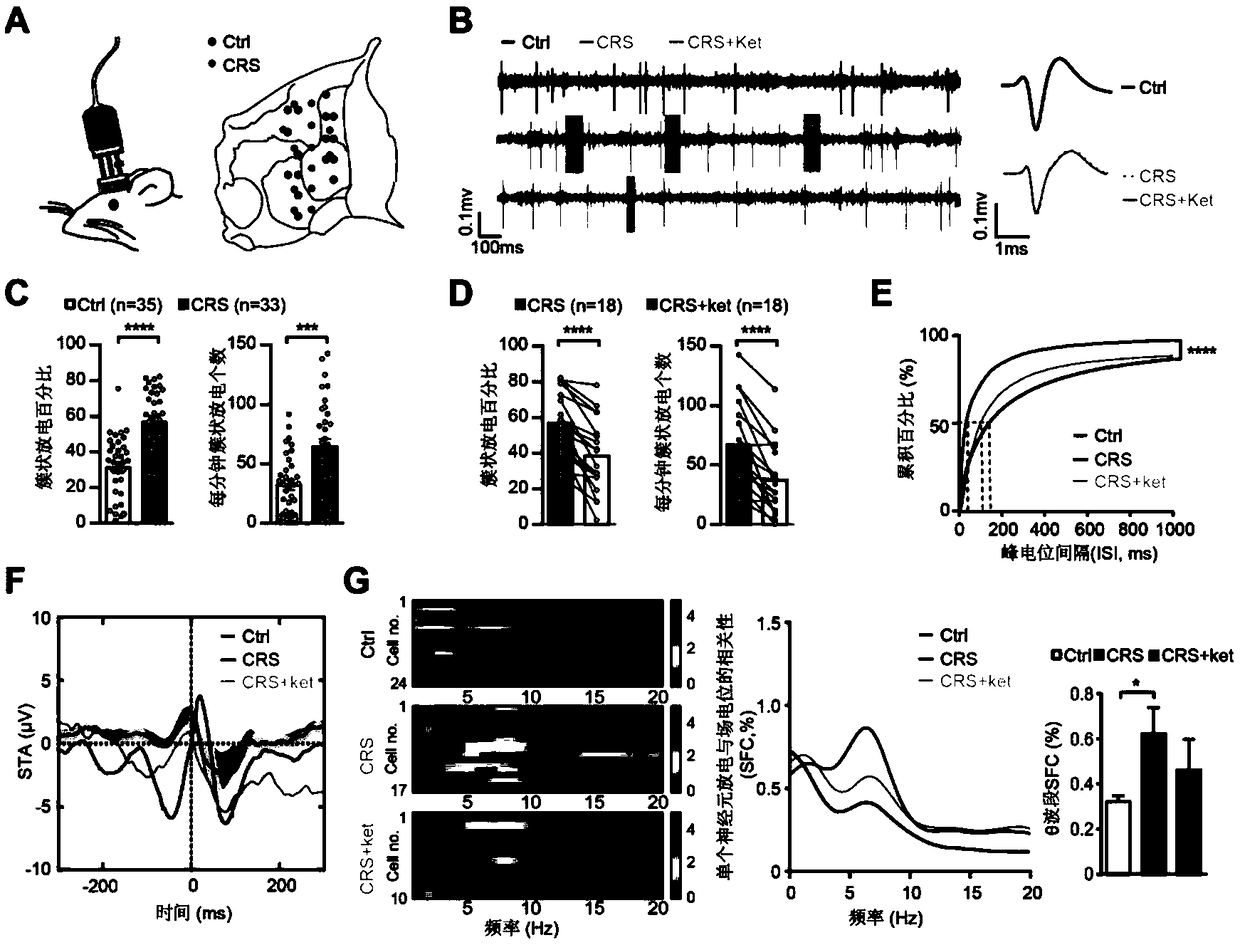Regulation and use of T-type calcium channel inhibitor to depression
A calcium ion channel and inhibitor technology, applied in the field of pharmaceutical compositions for the treatment of depression and its preparation, can solve the problems that the pathological mechanism of depression is not fully understood
- Summary
- Abstract
- Description
- Claims
- Application Information
AI Technical Summary
Problems solved by technology
Method used
Image
Examples
Embodiment 1
[0087] Embodiment 1 Materials and methods
[0088] animal material
[0089] Male cLH rats (4-12 weeks old), Sprague Dawley rats (4-12 weeks old). The cLH rat is a selectively bred animal model of depression with an innate learned helplessness depressive phenotype (D. Schulz, M.M. Mirrione, F.A. Henn, Neurobiol Learn Mem 93, 291, Feb, 2010). The cLH rats in this experiment were imported from Malinow Laboratory in Cold Spring Harbor, USA. The cLH rats were housed and bred as described in D. Schulz, et al, Feb, 2010, supra. 4 rats / cage, 12-hour light-dark cycle (7am-7pm with light). One cLH rat was used for cannula experiment per cage. Adult (8-12 weeks old) C57BL / 6 mice were used for behavioral testing: 4 mice / cage, 12-hour light-dark cycle (5am-5pm with light). Both rats and mice had free access to stable water and food, and all animal experiments were approved by the Animal Care and Use Committee of Zhejiang University.
[0090] virus construction
[0091] AAV9-CaMKII-e...
Embodiment 2
[0120] Example 2 Local administration of NMDA receptor inhibitors in the lateral habenula of rats can produce rapid antidepressant effects
[0121] Changes in the depressive phenotype were observed by administering ketamine to cLH depressed rats after bilateral cannulation of the lateral habenula. figure 1 A is a schematic diagram of bilateral cannula implantation in the lateral habenula of cLH rats, and the white dotted line indicates the position of the habenula. figure 1 B-G present the results of experiments: local bilateral application of different NMDAR inhibitors ketamine (25 μg each side, figure 1 B-D) and AP5 (40nmol each side, figure 1 E-G) to LHb, which effectively reversed the depressive phenotype in cLH rats within a short period of time (0.5 or 1 hour), including a significant reduction in immobility time in forced swimming ( figure 1 C and F), significantly increased the preference of depressed animals to sugar water ( figure 1 D and G).
[0122] It was also...
Embodiment 3
[0125] The firing characteristics of three kinds of neuron spontaneous discharge patterns (no discharge, single discharge and cluster discharge) in the lateral habenula of embodiment 3 in depressed animals
[0126] Using the whole-cell patch clamp technique to observe the firing patterns of neurons in the lateral habenula of depressed animals in isolated brain slices. figure 2 A shows the recording sites of whole-cell patch-clamp recordings, which are distributed in different subregions of the lateral habenula. It is found that there are three typical patterns of spontaneous firing in neurons in the lateral habenula, which are silent (silent) ( figure 2 shown in B), a single discharge (tonic) ( figure 2 Shown in C) and burst discharge (burst) ( figure 2 as shown in D).
[0127] figure 2 The E (scatterplot) and F (cumulative curve) show the mean and distribution of resting membrane potentials (RMPs). The results showed that, compared with non-firing cells, the resting...
PUM
 Login to View More
Login to View More Abstract
Description
Claims
Application Information
 Login to View More
Login to View More - R&D
- Intellectual Property
- Life Sciences
- Materials
- Tech Scout
- Unparalleled Data Quality
- Higher Quality Content
- 60% Fewer Hallucinations
Browse by: Latest US Patents, China's latest patents, Technical Efficacy Thesaurus, Application Domain, Technology Topic, Popular Technical Reports.
© 2025 PatSnap. All rights reserved.Legal|Privacy policy|Modern Slavery Act Transparency Statement|Sitemap|About US| Contact US: help@patsnap.com



